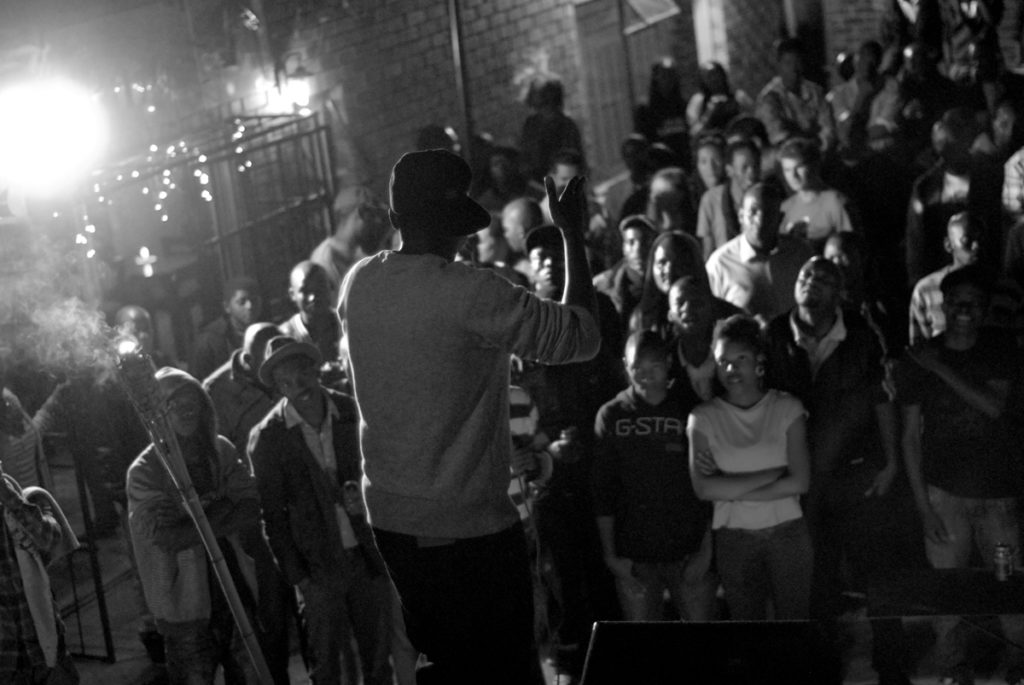I come from Lesotho, a country not only plagued by the tired narrative of western media – war, famine, HIV and Aids – but also one that possesses its own unique set of problems. We are often portrayed as little else but a nation of blanket-wearing horse riders and job-stealing immigrants. Lesotho-isms can fill up a novella – example: we’re horse meat-eating imbeciles whose country should be incorporated into South Africa because we “just sponge on South Africa and [have] no true right to statehood”. Yes, ignore historical events which led to the status quo; disregard our scholars; overlook our founder King Moshoeshoe I, who may have been the greatest diplomat on the continent. Just bundle this nation of 1.8 million-odd nobodies – nobodies who, by the way, hosted successful elections and oversaw a peaceful transition into a destructive mess that needs cleansing.
Collectively we are known as Basotho (the singular is Mosotho), an amalgamation of people from different clans founded by King Moshoeshoe I during the fierce Mfecane wars of the early nineteenth century. We have fought our battles, managed to win some, and suffered major defeats in the process.
Lesotho is as much a part of the continent as any other nation. Our potholes are no less different from those in Uganda; our highlands, though not as densely forested, are as green as any in the Congo; our government is as corrupt; our public sector services – health, education – as inefficient as those in any other member states. Sometimes, the authorities like to pull a Ghana on us with rolling power blackouts, but thank goodness these are not frequent! We have food, we have life, and we have rap music.
Like elsewhere on the continent (Mali, for instance), our form of rap is informed by age-old traditions. Our rappers are from a lineage of liroki (praise singers) who used their oratory skills to record history for the sake of posterity. Lithoko tsa Marena a Basotho (Praise songs of the kings) by African folklorist Z.D. Mangoaela contains praise songs composed by chiefs during wartime; vivid portrayals of the setting, the events, and the aftermath are outlined in their moving depictions of battle.
Our hip-hop culture is devoid of burgeoning graffiti, deejay, or break dancer scenes à la South Africa or Egypt. Though we are aware of these elements, their incorporation seems to have been secondary to the rap aspect. Perhaps the paint was too expensive, and those who could afford turntables found collecting and spinning house music vinyl more lucrative. After all, hip-hop in Lesotho remains a fringe culture with no guaranteed returns; a labour of love where labourers toil with no end in sight.

Rap was introduced in the late eighties/early nineties through people whose families had travelled overseas and had access to all the releases which were making waves during that period – the Public Enemy’s, Rakim’s, and NWA’s. Throughout the nineties, local rappers tried to get songs recorded and released, but the odds adversely affected their individual and collective efforts. Firstly, no one in power saw hip-hop as a cultural tour de force, and everyone else who was not a practitioner but had exposure to it in some way immediately dismissed it as an ‘American thing’. More importantly though, Lesotho has never had a recording industry to boast of – all of the traditional Sesotho musicians had to – and to some extent still do – cross the border into South Africa in order to ply their trade and become recognised.
All these factors, coupled with the environment at that time – one public broadcaster in the form of Radio Lesotho, lack of interest in the music by the general populace, as well as low disposable income of citizens – made it near impossible to have any hip-hop/rap movement to speak of.
And so it was that hip-hop heads got relegated to the peripheries of society, and rappers only had the odd show to attend – at least this was the case when I got involved towards the tail end of the nineties. While I had been listening to rap music for some years, coupled with the staple diet of kwaito à la M’du, Trompies and BoP, I had never considered rapping until then. The scene as I remember it at that time consisted mainly of rap ciphers (‘jam sessions’) around town; Wu Tang Clan and Canibus were big in the rap world, so naturally emcees gravitated towards their style of rap.
In 2013, the challenges have advanced beyond lack of airplay or live performance venues, though there is still a shortage of the latter. Rather, Lesotho hip-hop struggles with relevance: to purge the bones of Americanisms in favour of a more local aesthetic, one that derives from the ubiquitous accordion music scene, for instance. Along with this, the challenge is to also address and redress social ills (rape, police brutality, government fraud); to engage people in a conversation that stretches beyond the trappings of mainstream rap’s materialistic sensibilities. I am confident that we will get there. We started with cassette tape demos before graduating to lo-fi DIY recording and small-scale CD replication. Now we have our own bedroom set-ups and small-scale studios. It will be interesting to see what comes next.
Artists worth checking out
The legendary Papa Zee was one of the first rappers (along with his crew, the Ethnics) to make an impact on the Lesotho hip-hop scene by organising small-scale shows and talent competitions.
A duo of forward-thinking lyricists whose long-time involvement in the rap scene has given them a firm grounding on which to unleash their futuristic, kwaito-rap-afro-jazz-inspired brand of musicality.
A relative newcomer, he understands the fundamentals of lyrically intensive hip-hop, yet utilises his natural flair for well-crafted raps to deliver borderline catchy songs, satisfying the uninitiated and the connoisseurs in the process.
Ts’eliso Monaheng is a Lesotho-born writer whose obsession with rearranging words is threatening to overtake his abilities as a computer scientist. He blogs at ntsoana.wordpress.com
